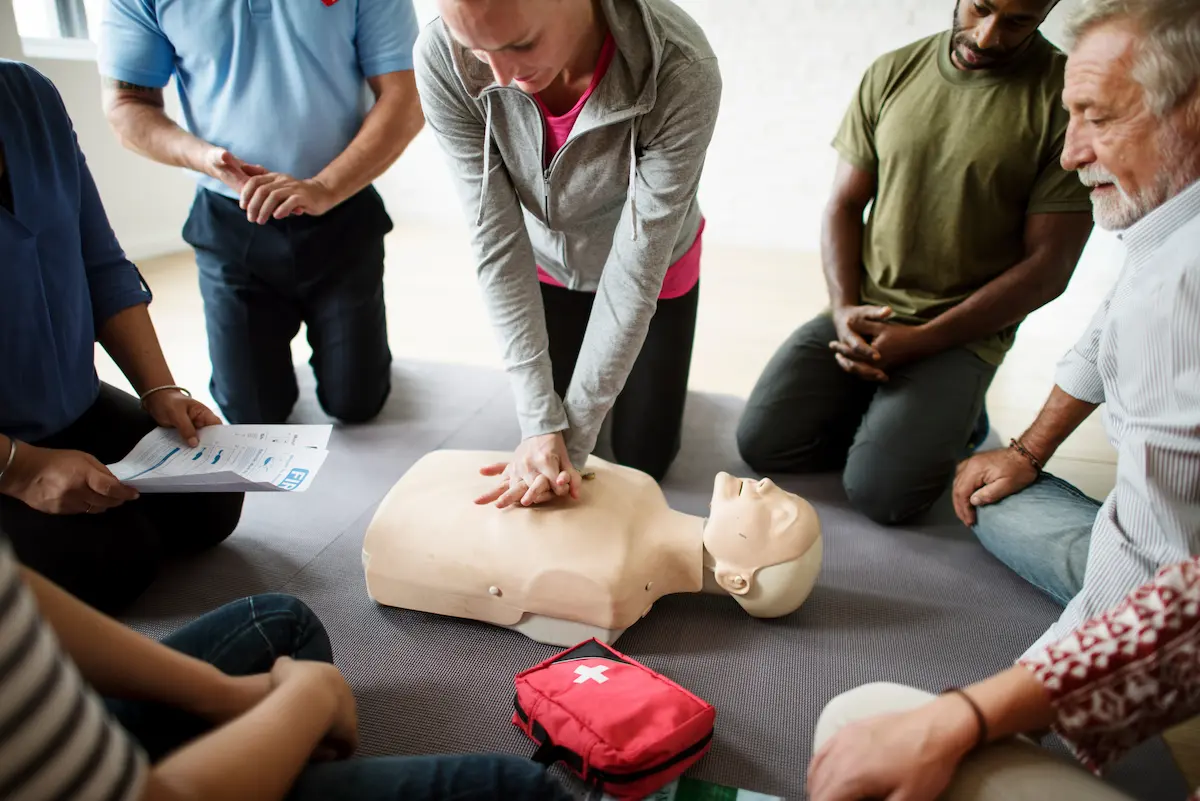If you often find yourself putting others before yourself, then you might want to consider entering the nursing field. While some people feel discouraged to become a nurse due to the education requirements, we’re here to explain that they are not as arduous as you’d think. This blog will go in depth on the education requirements for different levels of nursing, the prerequisites for nursing school, and everything you should know before becoming a nurse. You can also read our 12 Reasons to Pursue a Career in Nursing blog to get a better idea of the many benefits involved in the field.
Everything you should know before becoming a nurse
Before thinking about becoming a nurse, there are a few things everyone should know. It’s beneficial to know exactly what you’re getting yourself into so that no surprises come up.
Extra certifications may be necessary
If you’re a person who has a lot of interests, or maybe doesn’t know exactly what you want to do in the field of nursing, then gaining more certifications is a good idea. Having a better understanding of the places and people you want to work with will help you decide which certifications you’ll want to earn for your career. Obtaining certifications will also make you more valuable in your career because of the increased demand for specialized nurses. With over 200 certifications available to pursue, you’ll have a wide array of options to consider. Interested in working as a nurse anesthetist or in critical care? Further certifications will help you do just that.
Nursing isn’t your typical 9-5 job
Before joining the field of nursing, it’s important to know that nurses often must work longer shifts, some of which are on weekends and holidays. Another difference between a nursing career and a typical 9-5 job is that nurses only work three to four days a week rather than five. This might lead to missed social events and decreased time spent with family and friends, however, this can be easily managed. Scheduling time in advance to be with loved ones will help you maintain a good work life balance.
Your patients will also love spending time with you on the holidays when they probably also wish they were home with family and friends. Read our Tips for Healthcare Workers During the Holiday Season blog to learn more about the positive aspects when working holidays.
Scrubs can be expensive
Nurses will inevitably have to buy several pairs of scrubs to wear to their shifts if the healthcare facility they work at does not provide them. However, not everyone realizes how expensive a good pair of scrubs can be. Popular brands such as FIGS and Jaanuu can add up and become costly when you need several pairs. The plus side, however, is that it will take just about no time to get ready in the mornings. Just throw on a pair of your scrubs and you’re good to go! You’ll also want to make sure you have a quality pair of closed-toed shoes when working in healthcare. With all of the walking you’ll be doing, it’s important to have a pair of tennis shoes that will keep you comfortable throughout your shift.
Experience is everything
While nursing school and clinicals will help you prepare for being the best nurse you can be, experience serves as an invaluable tool when working in the field. When you first start your nursing career, you probably won’t be perfect at everything you do, and that is why work experience will benefit you and your skills over the years. If you feel comfortable doing so, you can even pick up extra per diem shifts to gain more hands-on experience.
Not all patients will be friendly
When working in healthcare, it’s common to have a grumpy patient here and there. Being in a hospital or other healthcare facility can be scary and frustrating for some people, especially when they aren’t feeling their best. Just know that it’s not your fault, so try to be as patient and kind as you can during this stressful time they are in.
Requirements for nursing school
Common prerequisites that are helpful to be aware of for nursing school include one semester of psychology, statistics, nutrition, and lifespan growth and development. You will also need two semesters of English composition, biology, and one to two semesters of anatomy and physiology. Finally, you’ll need to complete one semester of chemistry and microbiology along with the required labs (Morris, 2023).
When deciding on nursing school degrees, you have two options. You can either complete an associate degree in nursing (ADN) program or a bachelor of science in nursing (BSN) program. ADN programs often require high school students to have an overall GPA of 2.5 or higher. A BSN, on the other hand, requires an overall GPA of at least a 3.0.
It’s also imperative that you do diligent research when deciding which nursing school you’d like to attend. According to an article by NurseJournal, “Some nursing schools require entrance exams, such as the National League for Nursing Pre-Admission Exam or the Nursing Entrance Test, to determine an applicant's likelihood of success,” (Morris, 2023).
Education required for the different levels of nursing
Listed below are several different levels of nursing, starting with areas that require the least number of years in school to the most. This section will inform you of the degrees required for each level of nursing and how long it typically takes to complete the programs.
Certified Nursing Assistant (CNA)
A certified nursing assistant, or a CNA, is a healthcare professional that assists more advanced nurses with providing care for patients. Common duties include taking patients’ vitals, assisting with wound care, bathing patients, documenting medical information, and much more (Kelly-Cortez, 2020). To become a CNA, you’ll need a high school diploma or a GED, CNA training, and you’ll need to pass a CNA certification exam (Registered Nursing.org, n.d.).
Licensed Practical Nurse / Licensed Vocational Nurse (LPN / LVN)
In nursing, a licensed practical nurse (LPN) and a licensed vocational nurse (LVN) are considered the same role. The only difference between the two is that some states, such as California and Texas, refer to the role as a Licensed Vocational Nurse (Berg, 2022). In all other states, the position is called a Licensed Practical Nurse. LPN / LVNs work under the supervision of registered nurses and doctors, as well as help patients feel comfortable and provide basic care (Berg, 2022).
To become an LPN / LVN, a high school diploma or GED is needed. According to the Occupational Outlook Handbook, “LPNs and LVNs must complete an approved educational program. Certificate and diploma programs are commonly found in community colleges and technical schools, including some high schools, and typically take about 1 year to complete,” (U.S. Bureau of Labor Statistics, n.d.). After this step is completed, you’ll need to pass the National Council Licensure Examination (NCLEX-PN).
Registered Nurse (RN)
In a broader sense, a registered nurse’s (RN) role is to provide direct patient care, as well as educate them about the state of their health. Registered nurses perform tasks such as recording patients’ medical history, collecting blood samples for laboratory work, helping coordinate a patient’s treatment plan, and much more (Regis College, 2021).
If you’re interested in becoming an RN, you’ll need to earn a BSN or ADN degree, pass the NCLEX-RN exam to obtain a license, and gain experience through clinicals (Morris, 2023). It is also a good idea to become certified in an area of interest so that you’re considered to be in even higher demand. Becoming specialized in an area is extremely valuable in the healthcare industry, so it doesn’t hurt to research the many options you have.
Advanced Practice Registered Nurse (APRN)
APRN’s are advanced healthcare professionals in the nursing field who often provide various forms of care. According to an article, “APRNs treat and diagnose illnesses, advise the public on health issues, manage chronic disease, and engage in continuous education to remain ahead of any technological, methodological, or other developments in the field,” (American Nurses Association, n.d.).
To become an APRN, you’ll need the same education requirements and license that a registered nurse has, however, on top of that you’ll also need at least a master’s degree. You have the option to choose from a Master of Science in nursing (MSN), which typically takes two years to complete, or a Doctor of Nursing practice (DNP), which usually takes two to four years to complete (Bal, 2023). Finally, you’ll have to pass the APRN certification exam to be a practicing Advanced Practice Nurse.
When people think about nursing, they may not realize that there are many options and levels within nursing. Now that you are more familiar with the different levels and education requirements involved in these nursing areas, we hope you consider joining the field. Nurses are always needed, and the benefits that come along with the occupation are more than worthwhile. Search Favorite’s jobs to start your nursing career today!
Sources
https://nursejournal.org/resources/prerequisites-for-nursing-school/
https://www.registerednursing.org/certified-nursing-assistant/
https://www.wgu.edu/blog/what-cna-job-description-career-guide2008.html
https://www.bls.gov/ooh/healthcare/licensed-practical-and-licensed-vocational-nurses.htm#tab-4
https://www.regiscollege.edu/blog/nursing/what-does-registered-nurse-do
https://nursejournal.org/registered-nursing/how-to-become-a-rn/





